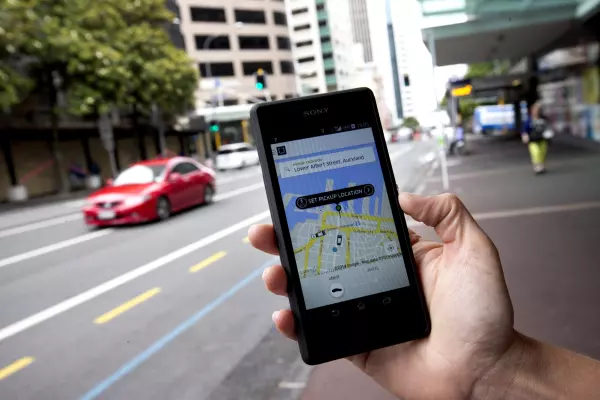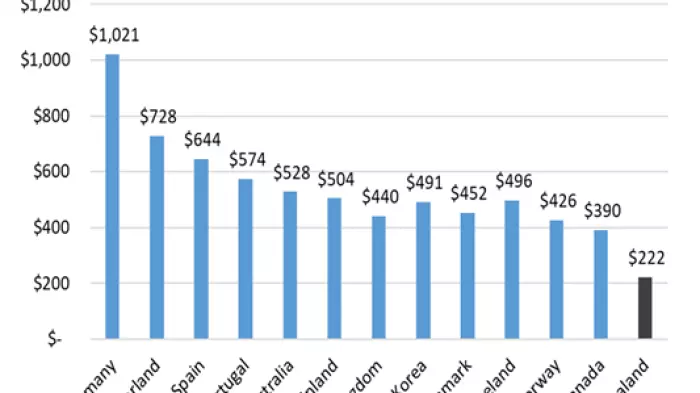BusinessDesk investments editor Frances Cook responds to emails from readers each week, answering questions about money. Below, you will find her expert advice. Send your questions to [email protected].
Hi Frances,
I'm wondering if you had done a recent podcast or article on paying off debt while trying to save, especially with the recent cost-of-living crisis.
I'm finally getting serious to save for a house but I have a huge personal loan to pay off. I can't seem to find a neutral ground between paying off the loan and saving up for a deposit (excluding KiwiSaver).
M.
Hi M,
These are some great financial goals, but it seems like you’re trying to ride two horses when you’ve only got one butt.
Don’t half-ass two things. Whole ass one thing, then move on to the next.
The problem with money, and especially with debt, is that time is always a huge factor. So paying off debt as quickly as you can will save you money and mean you end up paying it down even faster again.
This means that focusing on just getting rid of the debt and then just building up the house deposit is actually likely to get you to the end goal faster.
The strategy
Here’s my suggestion – and a reminder, as always, that this is the general strategy that you can always adapt to your situation. But this is what I find works for most people.
First, it’s good to have at least $1,000 in savings. That will save you from many of life’s nasty surprises, such as a car repair or other unexpected but unavoidable expenses.
It’s good for your money and your mindset, as it means you won’t need more debt if something like that crops up, making you feel as if you’re going backwards.
But after that, I think you should focus all of your extra effort on destroying that debt.
Every day that debt exists costs you in interest. So, if you’re able to cut back spending as much as you can and focus all of your extra money on that personal loan, I think you’ll be surprised at how fast you can get rid of it.
It depends on the terms of the loan, but generally speaking, every extra dollar you can put on that personal loan is really powerful.
It not only wipes out a dollar of the loan, but it also wipes out everything that it would have cost you in fees and interest.
So, time is literally money. The faster you can pay it off, the less you pay overall.
Home deposit
This doesn’t mean you’ll be making no progress towards your home deposit, though.
By wiping out this personal loan, you’re also improving your odds of actually getting a mortgage when you apply for it.
Banks don’t love you to have other forms of debt – it makes them nervous that something will happen and you won’t be able to afford ongoing mortgage repayments.
They sometimes also see it as a red flag for poor money management overall, which they also don't love.
Think of banks as having the attitude of judgmental parents, and you've got the vibe about right here.
So, by paying off the personal loan, you’re getting yourself lined up for better treatment and possibly a better interest rate.
Don't feel too discouraged by how long this may take. There are plenty of options to boost you towards that final goal.
You might want to look into something like a low-deposit home loan. While the standard is 20% of the house price down, you can get 10%, or even 5%, with schemes like the Kainga Ora First Home Loan. You can find more information about that on their website.
Again, your chances of getting approved for a scheme like that are much higher if you have the rest of your finances in tip-top shape, such as by paying off the personal loan.
KiwiSaver
You can also keep some money going towards the first home deposit so that you’re making a bit of progress there.
The trick is KiwiSaver.
If you contribute 3% of your pay into KiwiSaver, you get the $521.43 yearly government contribution, as well as the 3% employer match. So you’re doubling your deposit money, thanks to other people.
Nice.
This amount of savings is unlikely to hurt your debt repayment goals and could build up faster than you think, thanks to those government and employer contributions. Well worth having.
If you think it will take more than five years before you can put down that first home deposit money, you could also consider having your KiwiSaver in growth, which could again boost those savings up some more.
Just remember you need time on your side for that strategy to work.
Once you’ve wiped out that debt, stick to the same budget, but focus the debt money into becoming deposit savings instead.
One goal at a time; I think you can get there.
Send questions to [email protected] if you want to be featured in the column. Emails should be about 200 words, and we won't publish your name. Unfortunately, Frances is not able to respond to every email received or offer individual financial advice.
Information in this column is general in nature and should not be taken as individual financial advice. Frances Cook and BusinessDesk are not responsible for any loss a reader may suffer.














